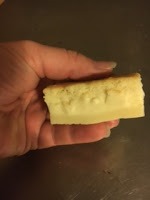
The Friday 56 is hosted by Freda's Voice
Rules:
*Grab a book, any book.
*Turn to page 56 or 56% in your eReader
(If you have to improvise, that's ok.)
*Find any sentence, (or few, just don't spoil it)
*Post it.
*Add your (url) post in the Linky here. Add the post url, not your blog url.
*It's that simple.
Book Beginning is hosted by Rose City Reader. All you have to do is share the opening line of the book you're reading and what you think about it. Check out the other posts here.
My book this week is The Butcher Bird by S.D. Sykes. Oswald is the new Lord of Somershill Manor and having trouble with his new position. And then a baby is found dead in a thorn bush and the people are blaming a huge bird. Oswald does not believe the bird exists and tries to find out who the real killer is.
Book Beginnings:
It was the tail end of the morning when the charges were laid before me and I would tell you I was tempted to laugh at first, for the story was nonsense.
Friday 56:
"I can't ride." He then smiled. A toothy and lopsided expression that was entirely disconcerting. "My legs are too wide apart," he said, pointing at his groin. "See. I can't grip the barrel of the beast. I keep sliding off."
This is the second book in the series and I have not read the first one (Plague Land) so they keep talking about things that I don't know about. I think it would help to understand the characters more if I had read the other book but the plot is not hard to follow. I like it but I don't think I'll run out and get the first one. By now I'm a little annoyed with Oswald. They keep saying he is a great investigator but every time something suspicious happens he doesn't ask any questions about it.









